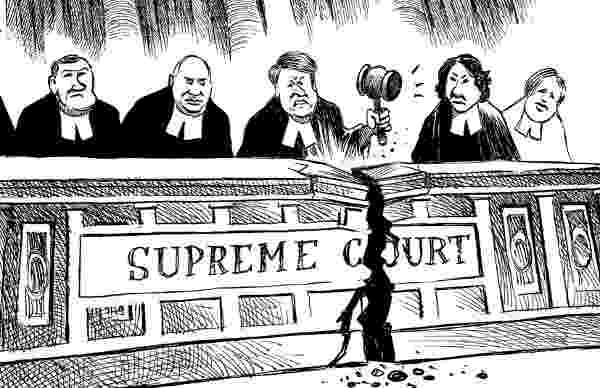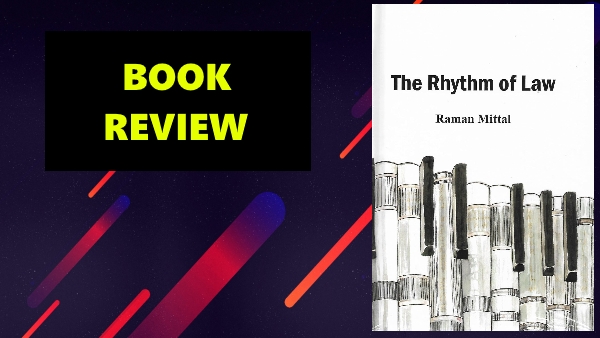Surajmani Stella Kujur v Durga Charan Hansdah case deals with the scope of provision of bigamy and its punishment. In India, Bigamy is considered to be an offence and is a punishable under Section 494 of the Indian Penal Code, 1860. The law relating to bigamy is applicable to Hindus, Jains, Buddhists, Sikhs, Parsis, Christians (except Muslims).
CITATION: AIR 2001 SC 938
BENCH: K.T. THOMAS, R.P. SETHI
RELEVANT PROVISON:
According to Section 494 of IPC:
“whoever, having a husband or wife living, marries in any case in which such marriage is void by reason of its taking place during the life of such husband or wife shall be punished with imprisonment not exceeding seven years and shall also be liable to fine.”
FACTS OF SURAJMANI STELLA KUJUR CASE:
- The parties involved in this case are admittedly tribals- the appellant being a Oraon and the respondent is a Santhal.
- The appellant confessed that their marriage falls out of the purview of Hindu Marriage Act, 1955 in light of Section 2(2) of the Act and are governed only by their Santhal customs and usage.
- Further, an alleged custom having the force of law which prohibits the solemnisation of second marriage and its consequences thereof, was also being referred by the appellant.
- Later, a complaint was being lodged against the respondent for violating the provisions of Section 494 of IPC, by solemnising a second marriage during the subsistence of the first marriage. The Trial court dismissed the complaint and hence this appeal was made to the concerned court.
LEGAL ISSUES:
- Who is a ‘Hindu’ for the purpose of the applicability for the Hindu Marriage Act, 1955?
- Whether a mere pleading of a custom stressing for monogamy could be taken into account for the conviction of appellant?
- Whether the appellant was able to prove sufficient evidences in order to prove the crime of bigamy being committed by the appellant?
RATIO DECIDENDI:
The answer to question (1) is provided in Section 2 of the Hindu Marriage Act, 1955 which is applicable to:
- Any person who is a Hindu by religion including Virashaiva, a Lingayat or a follower of the Brahmo, Prarthana or Arya Samaj,
- Any person who is a Buddhist, Jaina or Sikh by religion,
- Any other person domiciled in the territories of India except Muslim, Christian, Parsi or Jew by religion
The expression ‘custom and usage’ has been defined under Section 3(a) of the Act as:
“The expression custom and usage and rule which, have been continuously and uniformly observed for a long time, has obtained the force of law among Hindus in any local area, tribe, community, group or family :
Provided that the rule is certain and not unreasonable or opposed to public policy; and Provided that in the case of a rule applicable only to a family it has not been discontinued by the family”.
In order that the custom is legal and binding, it must be of immemorial origin and must be recognized by the court as reasonable. It was held in Mirza Raja Pushpavati Gajapathiraj v Sri Visweswar Gajapathiraj AIR 1964 SC 118, it was held that the party relying upon a custom is obliged to establish it by clear and unambiguous evidence.
Neither the reference of the alleged custom mandating monogamy was being made in the complaint nor the appellant could establish the existence of a custom which made the second marriage void, ineffectual, having no force of law or incapable of being enforced.
Thus in regard to question (2) and (3), it was emphasized that mere pleading of a custom stressing for monogamy by itself was not sufficient to constitute the offence of bigamy.
SURAJMANI STELLA KUJUR JUDGMENT:
In light of the above mentioned facts, the complaint against the respondent was rightly dismissed by the Trial Magistrate and High Court holding that-
“In the absence of pleadings, evidence and proof of the alleged custom making the second marriage void, no offence under Section 494 of IPC can possibly be made out against the respondent.” Thus, no case for prosecution for the offence of bigamy was made out against the respondent and accordingly, the appeal was dismissed.
Found Surajmani Stella Kujur v Durga Charan Hansdah case summary useful? We have a bunch of useful topics from the law of tort which will help you in your preparation here >>> FAMILY LAW
Check out our YouTube Channel for free legal videos >>> LAW PLANET YT





